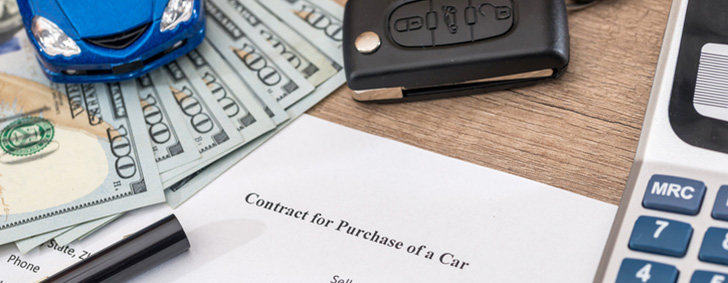
Why You Need a Bill of Sale
Whenever a car is sold, the transaction will generally involve a document called a bill of sale. This is not the same as a title transfer, which is the official proof of ownership. The bill of sale is a record of the transaction, similar to a receipt, and it is used in a variety of situations. A bill of sale contains critical information about the transaction that occurs when you buy or sell a car, and it is a legal requirement in some states.
What is On a Bill of Sale?
The specific requirements for a bill of sale vary by state, but in general, they often include the location and sale price of the transaction, a date and a notarized signature. A bill of sale may also include details such as:
- Date of sale.
- Signatures of buyer(s) and seller(s).
- Some states require that the signatures be notarized.
- The vehicle identification number, or VIN
- Odometer readings
- The vehicle's make and model
- The vehicle year
- The type of vehicle
The buyer and seller must also both provide their names and addresses for the document be valid.
Why You Need a Bill of Sale
While not all states require the use of a bill of sale, it's not uncommon for sellers to provide one anyway. Good record keeping helps to inspire confidence in the buyer that the transaction is legitimate.
A bill of sale can also help both the buyer and the seller avoid any contractual difficulties later in the process, as the details of the sale are clearly defined. The bill of sale lets the buyer know that the vehicle is being sold "as is" and that the seller isn't responsible for making any repairs before handing it over.
Vehicle Bill of Sale for Sellers
The seller has the most responsibility in any vehicle transaction, and state requirements normally specify that the seller is obligated to provide the bill of sale. Providing this document doesn't necessarily mean that the transaction is complete - a title transfer is still required to finalize the sale. However, the bill of sale can help prove that you no longer own the vehicle - and therefore aren't responsible for it - if it is ticketed or is involved in an accident.
Vehicle Bill of Sale for Buyers
The bill of sale is also an important document for the buyer. It clearly defines exactly what the buyer paid for, and it can be compared to the vehicle's history report to confirm that the details are accurate. This way, buyers can be sure they don't unknowingly get stuck with a car that doesn't run or they didn't pay for extras, such as warranties, that they aren't receiving.
The bill of sale also shows that the buyer has completed the payment for the vehicle. Having a bill of sale that clearly delineates details about the vehicle and its sale price can help make the vehicle registration process smoother since these documents are often used in calculating registration fees. Some buyers might also be allowed to use the bill of sale as collateral against a loan from a financial institution or bank.
Even if the state you live in doesn't require a bill of sale in private transactions involving vehicles, it's generally a good idea to have one anyway. Don't walk away from a transaction without protecting yourself against potential disputes down the line.